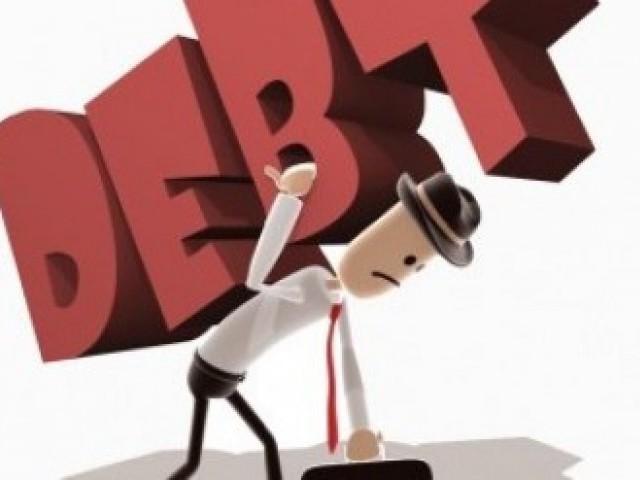 Every year the government has to raise money to run its programs, pay its employees, and provide the services we enjoy as a nation — services including things like the military, education, healthcare, highways and infrastructure, and scientific research etc. These services are popular, and many are essential, but they are costly, so to fund them we need an enormous budget. The government can finance its budget a few ways: raising taxes, which are politically unpopular; printing money, which leads to inflation; or borrowing money, which creates the debt, or through the sale of Treasury bonds. Borrowing is convenient because it allows the government to spend more money than it makes: it means services are not limited to what the government can pay for today. Instead, when Pakistan borrows, it has access to all the financial resources that any entity would want to lend on credit; Pakistan will pay them back with interest at some future date.
Every year the government has to raise money to run its programs, pay its employees, and provide the services we enjoy as a nation — services including things like the military, education, healthcare, highways and infrastructure, and scientific research etc. These services are popular, and many are essential, but they are costly, so to fund them we need an enormous budget. The government can finance its budget a few ways: raising taxes, which are politically unpopular; printing money, which leads to inflation; or borrowing money, which creates the debt, or through the sale of Treasury bonds. Borrowing is convenient because it allows the government to spend more money than it makes: it means services are not limited to what the government can pay for today. Instead, when Pakistan borrows, it has access to all the financial resources that any entity would want to lend on credit; Pakistan will pay them back with interest at some future date.
When a government borrows money, it creates both deficits and debt. Borrowing pays for expensive government services and allows Pakistanis to hang onto their money and spend it in the economy, which in general spurs growth. However, when the government borrows and spends more than it takes in, it runs a deficit. No country can run huge deficits every year for ever. However recent five years budget proposals project rising deficits for years to come. The national debt is the unpaid total of budget deficits, plus interest, year after year. Because politicians are often no more knowledgeable than is the public at large about the issues raised by budget deficits and debt, their calls for “financial responsibility” are often confused and contradictory, with politicians simultaneously calling for both balanced budgets.
Pakistan is living beyond its means. Our politicians have been spending money like drunken sailors, but that is an insult to drunken sailors, because at least they spend their own money, the politicians spend our money. We have been living way above our means for so long that we do not have any idea of what “normal” actually is anymore. The debt increase under PPP should concern everyone, rich, poor or middle-income, urban or rural, young or old. The debt the government accumulates today has to be paid eventually, and much of that obligation will fall on the shoulders of coming generation. This is simply unsustainable and it imposes a disproportionately large burden on our younger generations.
The debt is a liability of the federal government. What does the repayment of the debt do? It sets the tax rate at something more than is necessary to pay for current government expenditure and uses the surplus to buy federal bonds from the private sector. Raising taxes reduces economic growth and tends to encourage corruption and economic inequality. High debt loads have limited our policy options. Please somebody wake us up from this nightmare. Somebody should make us understand the countries that rely on other nations to buy their debt run a risk of becoming beholden to their creditors and having to trade sovereignty for liquidity. Due to its inability to pay its debts Pakistan has to accept various external conditions from IMF and other international agencies regarding its budget and national economic policies.
We were once almost a self dependent country to a reasonable extent, but now we are beggars. We have to beg foreign countries to give us aid and lend us money on a regular basis. It’s time to wake up Pakistan. We should know while people free of debt can live their lives with a great deal of freedom, the people buried under debt will find their options perpetually limited by what their budget, creditors and credit rating allow them to do. Currently, there is no sign that the institutions who lend us money are worried about proper utilization of debts or our ability to repay the money we borrow: it is the blessing of war on terror. What will we do if they ever say no and insist for repayment? The bigger the national debt that builds up, the more expensive it is to meet interest payments. At some point it will becomes more difficult and more expensive for government to borrow extra money.
The weight of our current national debt is going to cause our financial system to implode, and every Pakistani will feel the pain of that collapse. Debt levels have reached the point where the country is no longer able to repay its loans, and is forced to ask for help from the IMF in the form of massive loans. Such a growth of public debt is a sign of impending collapse. Pakistan’s debt-to-GDP ratio is close to 60%. Its debt liability has reached at Rs.13 trillion, resulting in debt servicing (including interest payments) to the tune of 45% f the government revenue. Although the public debt is already enormous and growing, yet it has grown even faster. The damage has been done, and PPP will go down in history as being grossly negligent on fiscal issues during this period. Under our current system, there is no mathematical way that this debt can ever be paid back. The road that we are on will either lead to default or to hyperinflation. Debt has to be repaid. A failure to repay prior debts will typically, at a minimum, result in significantly higher borrowing costs, and the availability of credit may vanish altogether. We have piled up the biggest debt, and if there are future generations of Pakistanis they will look back and curse us for what we did to them. Pakistan has been trapped in a vicious cycle and now it has to get loans only to repay the loans. Not only external debt, Pakistan’s domestic debt has also increased manifold during the last about five year tenure of the PPP-led coalition government. We like to think of ourselves as much wiser than previous generations, but the truth is that we have been so foolish that it is hard to put it into words.
The government should also set for itself debt reduction targets. The government needs an effective debt management policy whereby debt obligations are assessed on a five to ten year horizon. The privileged classes – ruling the country for the last six decades – are the main culprits who do not pay personal taxes on their colossal wealth and incomes and are beneficiaries of enormous loan write-offs. They are guilty of plundering and wasting public money. Due to rampant corruption, collection of sales tax, federal excise and custom duties is only 30 percent of actual potential which can be improved through proper planning. Corrective action with respect to the growing internal debt must be carried out. In order to reduce deficit, growth of current expenditure of the Government should be reduced. Foreign Investors needs to be permitted to invest in government debt. A Consolidated Sinking Fund needs to be created urgently to break the vicious cycle of rise in repayment, burden of public debt. The government should disinvest loss sustaining public sector units, especially, those which are not strategic, especially the sick ones. Disinvestment will enable the government to raise funds, which can be utilized to repay a part of the public debt.

